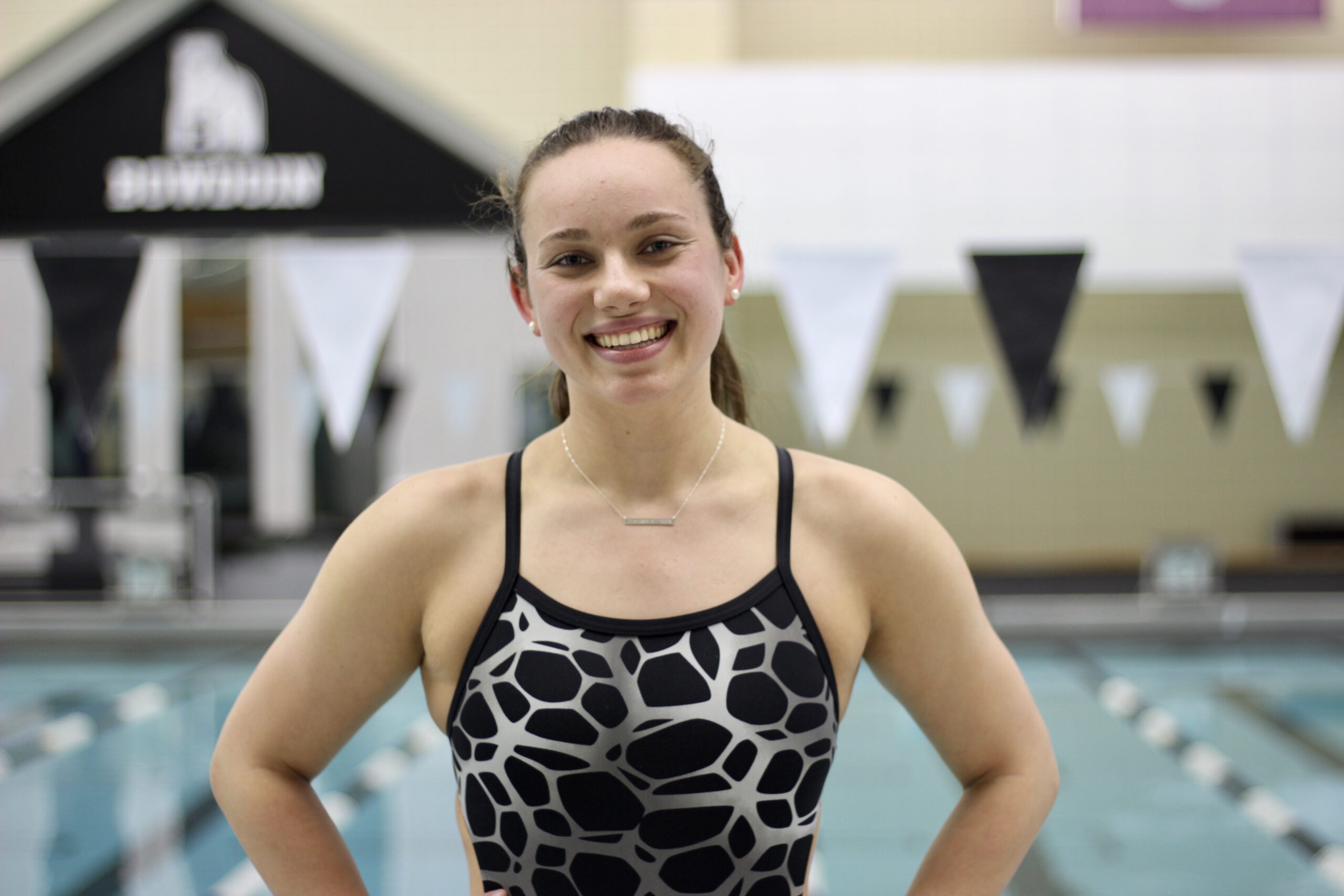Sterling Dixon crushes program records in championship meet
March 29, 2019
 Kayla Snyder
Kayla SnyderOver spring break, All-American Sterling Dixon ’19 competed in the NCAA DIII Swimming & Diving Championship in Greensboro, N.C., where she placed second overall in the 200-yard Butterfly, breaking school and personal records in the event. Over the course of the three-day meet, she also placed 4th in the 200 Freestyle, 7th in the 200 IM and was part of two relay teams that placed 5th and 6th.
Competitive swimming has always been a family affair for Dixon. When her older sister was eight years old, her father—who swam competitively in his college years—signed her up for a recreational team, and six-year-old Dixon was towed along to all of the practices.
“I had to watch her practice, and I was really bored. I hated it,” said Dixon. “I told my dad that I wanted to be on the team, so I became part of the team at age six, and I guess that’s how it started, from the pure boredom of watching my sister.”
Dixon swam for a recreational team until she was eight years old. Then, both Dixon and her sister switched to a USA swimming team. Competing on both her high school and USA swim team until her senior year, Dixon fell in love with Bowdoin as a recruit.
“Out of all of the recruit trips that I attended, Bowdoin was a school that I genuinely enjoyed my time at,” Dixon remembered. “I fell in love with the team and the team environment, and that was something that was really attractive that I did not find at any of the other schools I looked at.”
Upon arriving at Bowdoin, Dixon was excited to get to work.
“Going into my freshman year, I was really excited and I had a lot of expectations for myself,” said Dixon. “[But in the first week of December] I found out I had mono.”
With an illness restricting her early-season trainings, Head Coach Brad Burnham helped Dixon come up with a training plan that would help her have a successful season. That year, Dixon qualified for Nationals in the 200 Fly at a “Last Chance Meet.”
During her sophomore year, Dixon went on to place in the top eight in the 400 IM at Nationals—securing a strong seventh place finish—and was named All-American.
When Dixon returned to campus for her junior year, though, she struggled with near-constant exhaustion.
“I had a lot going on, and it was showing in the pool. I was not able to get the most out of practices, which in the end definitely affected my swimming,” Dixon said.
Eventually, Dixon discovered her iron and B12 levels were especially low, leaving her tired and sluggish.
“I didn’t do as well as I hoped last year, which was hard because that was the second bad season I had out of the three that I had been here,” said Dixon.
After that season, Burnham and Assistant Coach Cathleen Pruden sat down with Dixon to see what they could do differently to help her have a successful final season. A large part of this was finding a taper schedule that worked well for her.
Tapering is the process where athletes rest their bodies before big competitions so they build muscle rather than break it down. The optimal schedule varies from athlete to athlete. Dixon decided to do a taper meet in December, rather than just for the end of season championship.
Then leading up to Nationals, Dixon did not swim for more than 10 minutes a day, in accordance with her new taper plan. At Nationals, it all paid off.
“The amount of rest that I need is actually very usual for the events that I swim,” said Dixon.
Dixon attributes much of her success to Burnham and his coaching style.
“We were both open to communicating on his coaching and my training style to ultimately come up with a method that would help me succeed as a swimmer,” said Dixon. “I think that’s really important, and I don’t know many coaches that are willing to do that.”
Though Dixon competed in a majority of individual events at Nationals, her teammates have made all the difference for her.
“If I was training alone I would not be where I am today,” Dixon said. “The number of times that all of my teammates pushed me to be better in the pool and challenged me is a direct correlation to my success.”

Comments
Before submitting a comment, please review our comment policy. Some key points from the policy: